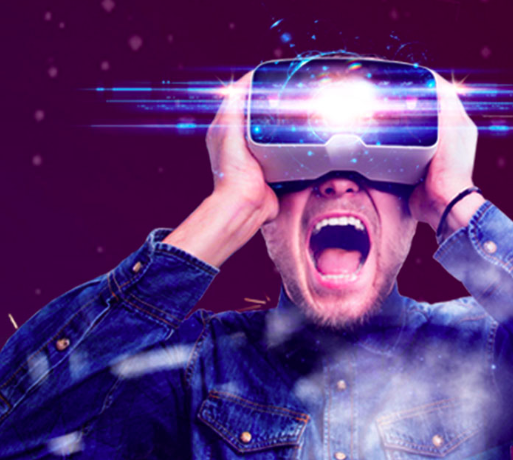Four Ways Virtual Reality can Improve Brain Function
We all know that brain function has a major impact on our quality of life and ability to relate to others. How well our brain functions depends on the types of activities we choose to engage in. Virtual reality (VR), which immerses us into a new reality, is good for more than just playing games or watching a game from courtside.
What you need to know about VR is that it can radically improve your brain and improve cognitive function. Our reality is constructed by our minds, since our brain takes the sensory information it receives, filtering and analyzing it for a complete experience. Because of this, VR’s ability to create sensory immersion can help us to make positive changes, overcome fears, and function on a higher level.
Here are 4 ways VR can help improve brain function for a better life.
Brain Training
Every physical sport has a major mental element to it. The most successful players aren’t just physically talented—they have the mental edge as well. VR has recently become an important tool in honing athlete’s mental conditioning and allowing them to practice in an immersive environment with little risk for injury.
So far, colleges have been one of the biggest users of VR for training athletes—a crucial time for young players as they hone their skills. VR gives them the opportunity to really practice their reaction times and be part of the experience, which is much more valuable than sitting on the sidelines.
Stanford football player Conrad Ukropina explained why VR is helpful for creating the kind of subconscious edge players need to win:
“Kicking is like golf. It’s like bowling. You want everything to be unconscious and muscle memory. The magic is the extra edge you can get.”
Balances Your Body
When it comes to our health, the brain and the body as a whole are intertwined. New studies are showing that helping the body and brain work together can help people cope with emotional disruptions and even some diseases. VR is being used to help with neurological problems and can help the brain assist the body in overcoming problems like high blood pressure and anxiety.
VR training can even be used to help Parkinson’s patients balance. Researchers in Tel Aviv helped Parkinson’s patients navigate an obstacle course after VR training and found that the patients were less likely to fall after the training. This may be because VR is able to essentially trick the brain into accepting a new reality.
As we learn more about the plastic nature of the brain, VR could play a major role in the emerging trend of integrative care. Ensuring that every aspect of the patient’s health is addressed—physical, mental, and emotional—is helping to improve outcomes. If VR can train the brain, it could positively impact other aspects of health.
Helps with Memory
Having a sharp memory helps us in everyday life, but some people have trouble recalling things. That can be an issue in school, at work, or even in one’s personal life. Fortunately, VR has been shown to be a great tool for improving memory. Visuals can help people make connections and recall things, and those connections seem to be amplified in the immersive environment of VR.
In one study, participants were 8.8% more accurate in recalling familiar faces (politicians, celebrities, and even cartoon characters), their locations, and their relationship to other faces when they had used VR headsets vs. viewing the scenarios on desktop computers. It has been noted that the use of 360-degree is more likely to trigger memory-writing areas of the brain, supporting the notion that the addition of different sensory inputs helps to improve memory.
Assists in Trauma Healing
One of the most important uses of VR in improving brain function is in therapeutic sessions for helping people to heal from past trauma. VR has been used to help PTSD patients recover for some time now, and has proven to be extremely effective in this application.
Today, VR is also emerging as a therapy for people with pain or recovering from concussions. New studies show that VR can help patients overcome pain, which could be key in preventing overdose deaths from prescription and over-the-counter painkillers.
The Future of VR in Training the Brain
Because the brain literally influences every aspect of our lives and creates our reality, it’s encouraging that science has shown that VR can be used to make our brains and our lives better. By increasing research in VR, we have the opportunity to help everyone from Parkinson’s patients to college athletes lead better lives.

